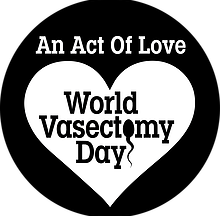NO-NEEDLE NO-SCALPEL VASECTOMY
WHAT IS A VASECTOMY ?
A vasectomy is a simple, safe and effective form of permanent contraception. It is a quick and popular procedure (20,000 per year in Ontario) that is performed in a doctor’s clinic with local anaesthesia in less than 15 minutes. A vasectomy prevents the sperm from entering the semen by blocking the tubes (vas deferens) that carry sperm from the testicles.
WHY OVIC?
- No-Needle No-Scalpel Vasectomy
- Open-Ended Vasectomy
- Short wait times
- Fully covered (OHIP only)
- Accepting Quebec patients
- No follow-up visit required
WHAT ARE THE BENEFITS?
FOR MEN
- Highly reliable permanent birth control
- Peace of mind by eliminating the fear of unintended pregnancy
- Alleviates the dependence on their partner’s compliance to their own birth control methods
FOR WOMEN
- Minimizes the risk of pregnancy and childbirth
- Eliminates the need to use hormonal birth control
- Avoid risks of female sterilization (tubal ligation)
FOR MEN AND FOR WOMEN
- Easily achievable benefits in a simple and safe 15 minute procedure under local anaesthesia
- Peace of mind and increased sexual satisfaction as a result of decreased fears of unintentional pregnancy
- Extremely low failure rate of 1/4000 (0.025%)
WHAT SHOULD YOU CONSIDER?
PERMANENCE – A vasectomy is a form of permanent contraception and, although reversible in theory, it should be considered non-reversible. A vasectomy reversal is a much longer, more complicated and more expensive procedure (not OHIP covered). With variable success rates, reversibility cannot be guaranteed.
IF YOU ARE UNDER 30 AND HAVE LESS THAN 2 CHILDREN
REGRET – Men who have a vasectomy in their 20s and/or have fewer than 2 children are the most likely to seek a vasectomy reversal. The longer it has been since your vasectomy, the less likely you are of having a successful reversal. This may lead to regret and tension in ongoing or new relationships.
YOU MAY CHANGE – Just like your favourite hockey team or favourite car model, your opinion may change with time. You are not the same person in your mid 20s as you may become in your mid 30s. Your outlook on children may change.
WOMEN CHANGE – Similarly, your partner’s views and desire to have children may change over time, especially if she has less than 2 children of her own and if her friends are having children as well.
RELATIONSHIPS END – Since more than 50% of marriages end in divorce, you may not be with the same partner ten years from now, and a new partner may have a much stronger desire for children.
BACK-UP PLAN – Young men may want to consider sperm storage. The Ottawa Fertility Centre offers this service.


